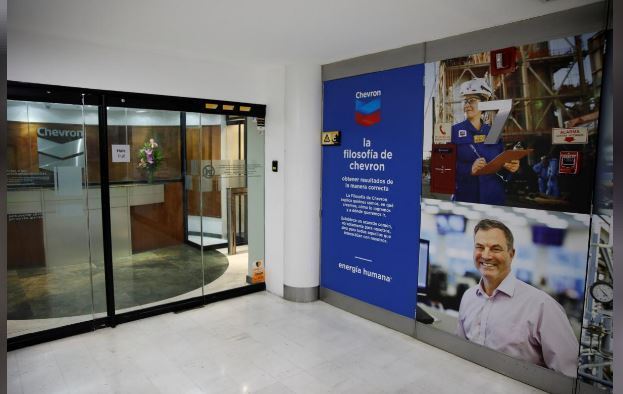
(S&P Global Platts, 18.Feb.2020) — The Trump administration’s decision to sanction Rosneft’s trading arm Tuesday may be a sign that Chevron’s waiver allowing it to continue its work in Venezuela may soon expire, analysts said.
The Rosneft sanctions may also bolster the case for the Chevron waiver to be extended before it expires on April 22, they added.
“It’s unclear,” said Francisco Monaldi, the Latin American energy policy fellow at Rice University’s Baker Institute for Public Policy.
As it announced its sanctions on Rosneft Trading, the Geneva-based trading arm of Russian state oil company Rosneft, for its Venezuelan oil trade, Trump administration officials warned of increased pressure on the Maduro regime and additional sanctions.
“There will be more steps and further pressure in the coming weeks and months,” said Elliott Abrams, the US State Department’s special representative for Venezuela.
This could mean that the administration will not renew its waiver allowing Chevron, Halliburton, Schlumberger, Baker Hughes and Weatherford International to continue certain work with PDVSA, outside of US sanctions, Monaldi said.
Abrams declined to comment on how the Rosneft sanctions may impact the Chevron waiver.
But, Monaldi said, if the Rosneft sanctions are effective, drastically reducing PDVSA’s sales, it may bolster the argument to extend the Chevron waiver.
Last month, the US Treasury Department extended the waiver until April 22. It was the third three-month extension the waiver has received since it was initially issued in January 2019.
The waiver, formally known as General License 8, has been extended based on the argument that the presence of US companies is necessary to prevent the complete collapse of Venezuela’s oil sector, easing an expected recovery once President Nicolas Maduro was forced out of power. Some within the Trump administration have been pushing for an end to the waiver as a measure to increase pressure on Maduro.
Kevin Book, managing director with ClearView Energy Partners, said the argument that forcing Chevron and other US companies out of Venezuela could hinder the US role in a potential, post-Maduro Venezuelan oil sector has led to three extensions. But Trump may allow the waiver to expire in April in order to increase pressure and bolster support from voters in Florida ahead of November’s presidential election.
“Our view remains that General License 8 continues to be an unresolved issue and could face greater scrutiny as the election approaches,” Book said.
Scott Modell, Rapidan Energy Group’s managing director and head of geopolitical risk service, said Tuesday that the Chevron waiver will likely be renewed since the US strategy is focused on ousting Maduro, not US companies, from Venezuela.
“Additional renewals of General License 8 would be in keeping with that strategy, as would further sanctions against Rosneft subsidiaries,” Modell said. “Russia was surprised by the sanctions, but has no plans to leave Venezuela. This fight isn’t over yet.”
In a statement Tuesday, Chevron said it was a “positive presence” in Venezuela. In 2019, Chevron’s share of production at its joint ventures in Venezuela averaged about 35,300 boe/d, or about 6% of the country’s total output.
“If Chevron is forced to leave Venezuela, non-US companies will fill the void and oil production will continue,” the company said.
By Brian Scheid
***


À l’heure actuelle, les logiciels de contrôle à distance sont principalement utilisés dans le domaine bureautique, avec des fonctions de base telles que le transfert de fichiers à distance et la modification de documents.